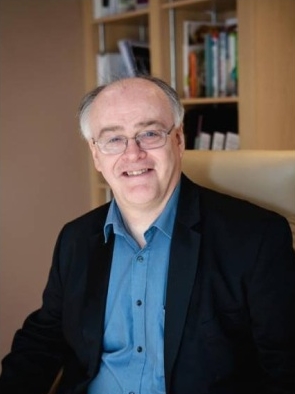Have you heard the one about Princes Risborough, the Vicar and the Wonder Drug?
The news that there are vaccines potentially ready to be rolled out to counteract COVID-19 is truly great news with the prospect that 2021 may see us being protected if they get regulatory approval.
That made me think about another wonderful medicinal creation that is regarded as one of the first ‘wonder drugs’ discovered- the humble but lifesaving Aspirin- and that if it were not for a Vicar born in Princes Risborough and what he did 262 years ago, how different life could have turned out to be for millions of people.
The Reverend Edward Stone was born to a family of farmers in Princes Risborough in 1702, and his family had lived in our parish for several hundred years. By the time he was 30 he was living in nearby Horsenden and had become a Curate in the Bicester area before becoming a Chaplain in the Chipping Norton district of Oxfordshire.
Then on one fateful day around 1757, Edward Stone was walking across a meadow in Oxfordshire when he came across a bark of the Willow tree. He tasted its sap which was very bitter, but it reminded him of a Peruvian Bark (known as ‘Jesuit Bark’) that he knew of which was known for its beneficial qualities – especially in the treatment of what was then called ‘the agues’ (chills or fever). The resourceful Vicar then gathered sufficient willow bark to pound it into a powder and over a period of some 5 or 6 years, he gave it to around 50 people -either congregants of his then parish or possibly family members – there was no ethical regulations in the 18th century for trying out new medications!
He found out that all of those people taking the powder showed an improvement in how they were feeling, and he said at the time “ (the pills) were a powerful astringent and very efficacious in curing agues and intermittent disorders”.
Edward Stone did not know it then, but what he had discovered was a substance called Salicylic Acid which it is now known is the active ingredient of Aspirin. Stone was no amateur in this as he held his own clinical trials – he gave the powder every 4 hours to people in either tea, water or in small beer and recorded the impact on his ‘patients’.
Having undertaken this hugely valuable research he summarised it all in a very detailed paper that he submitted to the President of the Royal Society in 1763 and in presenting it he told them:
“My Lord, among the many useful discoveries which this age has made, there are very few which better deserve the attention of the public than what I going to lay before your Lordship”.
The report was accepted and published, and the use of willow bark started to be used in the very early science of medicine but it would be another 90 years before chemists were able to isolate Aspirin’s active ingredient and made it more palatable to take and in 1899 the German company Bayer patented and sold what we now know as Aspirin. Within 50 years of that, Aspirin was officially recognised as the world’s most popular painkiller.
Aspirin is truly a wonder drug- it is now routinely used to reduce pain, fever, or inflammation. It is now accepted as part of the treatment given to people after a heart attack and decreases the risk of death. Taken over a longer term, Aspirin can help prevent further heart trouble, strokes, and blood clots. It is also believed that it can decrease the risk of certain types of cancer. What Edward Stone probably didn’t know though is that as incredible a drug as Aspirin is, it can cause stomach bleeding, so it has to be used carefully and may not be suitable for everyone. I, for example, can't take it as I suffer from Acid Reflux.
However, you cannot underestimate the role that our own Rev Edward Stone played in the modern discovery of Aspirin. He is remembered in his home parish of Chipping Norton with a plaque put up to commemorate him (above) but here in Princes Risborough he is hardly known of.
So, whenever you next reach for a packet of Aspirin, you might want to say a mental 'thank you' to the role that our local boy the Revd Edward Stone played in helping to bring to us the wonder that is the humble Aspirin!
Tags: Princes Risborough, COVID-19, Aspirin, Bayer, Chemistry, Medical Research, Edward Stone, Royal Society


